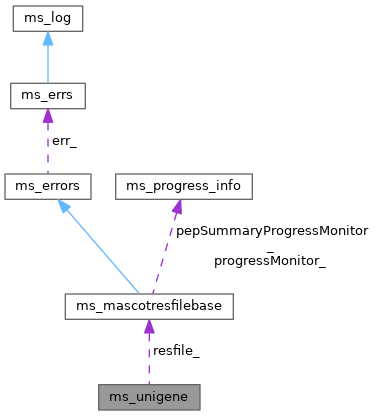This class encapsulates a complete unigene file. More...
#include <ms_unigene.hpp>
Inherited by ms_unigene_dat.

Public Member Functions | |
| ms_unigene (const ms_mascotresfilebase &resfile, const char *filename) | |
| The constructor for a unigene object. | |
| virtual const ms_unigene_entry * | findEntry (const char *id)=0 |
| Given an accession, return a pointer to the relevant unigene entry. | |
| virtual std::string | getUnigeneForAccession (const std::string accession, const int index)=0 |
| Return the Unigene 'accession' (ID) for a given EST accession. | |
Protected Member Functions | |
| void | addAccessionUnigenePair (const ms_unigene_entry *unigene, const std::string &accession) |
| Used internally to create a lookup of gi numbers to a list of accessions. | |
This class encapsulates a complete unigene file.
Creating one of these objects reads in the unigene file, creating a number of ms_unigene_entry objects. The gi and EMBL accessions are all indexed.